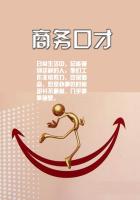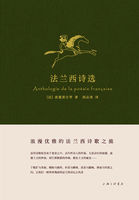PerfectionWill of God (Wolf and the (Crusius and other Stoics) theological Moralists)Those of the upper table are all empirical and evidently incapable of furnishing the universal principle of morality; but those in the lower table are based on reason (for perfection as a quality of things, and the highest perfection conceived as substance, that is, God, can only be thought by means of rational concepts).But the former notion, namely, that of perfection, may either be taken in a theoretic signification, and then it means nothing but the completeness of each thing in its own kind (transcendental), or that of a thing merely as a thing (metaphysical); and with that we are not concerned here.But the notion of perfection in a practical sense is the fitness or sufficiency of a thing for all sorts of purposes.This perfection, as a quality of man and consequently internal, is nothing but talent and, what strengthens or completes this, skill.Supreme perfection conceived as substance, that is God, and consequently external (considered practically), is the sufficiency of this being for all ends.Ends then must first be given, relatively to which only can the notion of perfection (whether internal in ourselves or external in God) be the determining principle of the will.But an end- being an object which must precede the determination of the will by a practical rule and contain the ground of the possibility of this determination, and therefore contain also the matter of the will, taken as its determining principle- such an end is always empirical and, therefore, may serve for the Epicurean principle of the happiness theory, but not for the pure rational principle of morality and duty.Thus, talents and the improvement of them, because they contribute to the advantages of life; or the will of God, if agreement with it be taken as the object of the will, without any antecedent independent practical principle, can be motives only by reason of the happiness expected therefrom.Hence it follows, first, that all the principles here stated are material;secondly, that they include all possible material principles; and, finally, the conclusion, that since material principles are quite incapable of furnishing the supreme moral law (as has been shown), the formal practical principle the pure reason (according to which the mere form of a universal legislation must constitute the supreme and immediate determining principle of the will) is the only one possible which is adequate to furnish categorical imperatives, that is, practical laws (which make actions a duty), and in general to serve as the principle of morality, both in criticizing conduct and also in its application to the human will to determine it.
I.Of the Deduction of the Fundamental Principles of Pure Practical Reason.
This Analytic shows that pure reason can be practical, that is, can of itself determine the will independently of anything empirical; and this it proves by a fact in which pure reason in us proves itself actually practical, namely, the autonomy shown in the fundamental principle of morality, by which reason determines the will to action.
It shows at the same time that this fact is inseparably connected with the consciousness of freedom of the will, nay, is identical with it; and by this the will of a rational being, although as belonging to the world of sense it recognizes itself as necessarily subject to the laws of causality like other efficient causes; yet, at the same time, on another side, namely, as a being in itself, is conscious of existing in and being determined by an intelligible order of things; conscious not by virtue of a special intuition of itself, but by virtue of certain dynamical laws which determine its causality in the sensible world; for it has been elsewhere proved that if freedom is predicated of us, it transports us into an intelligible order of things.
Now, if we compare with this the analytical part of the critique of pure speculative reason, we shall see a remarkable contrast.
There it was not fundamental principles, but pure, sensible intuition (space and time), that was the first datum that made a priori knowledge possible, though only of objects of the senses.
Synthetical principles could not be derived from mere concepts without intuition; on the contrary, they could only exist with reference to this intuition, and therefore to objects of possible experience, since it is the concepts of the understanding, united with this intuition, which alone make that knowledge possible which we call experience.
Beyond objects of experience, and therefore with regard to things as noumena, all positive knowledge was rightly disclaimed for speculative reason.This reason, however, went so far as to establish with certainty the concept of noumena; that is, the possibility, nay, the necessity, of thinking them; for example, it showed against all objections that the supposition of freedom, negatively considered, was quite consistent with those principles and limitations of pure theoretic reason.But it could not give us any definite enlargement of our knowledge with respect to such objects, but, on the contrary, cut off all view of them altogether.
On the other hand, the moral law, although it gives no view, yet gives us a fact absolutely inexplicable from any data of the sensible world, and the whole compass of our theoretical use of reason, a fact which points to a pure world of the understanding, nay, even defines it positively and enables us to know something of it, namely, a law.















